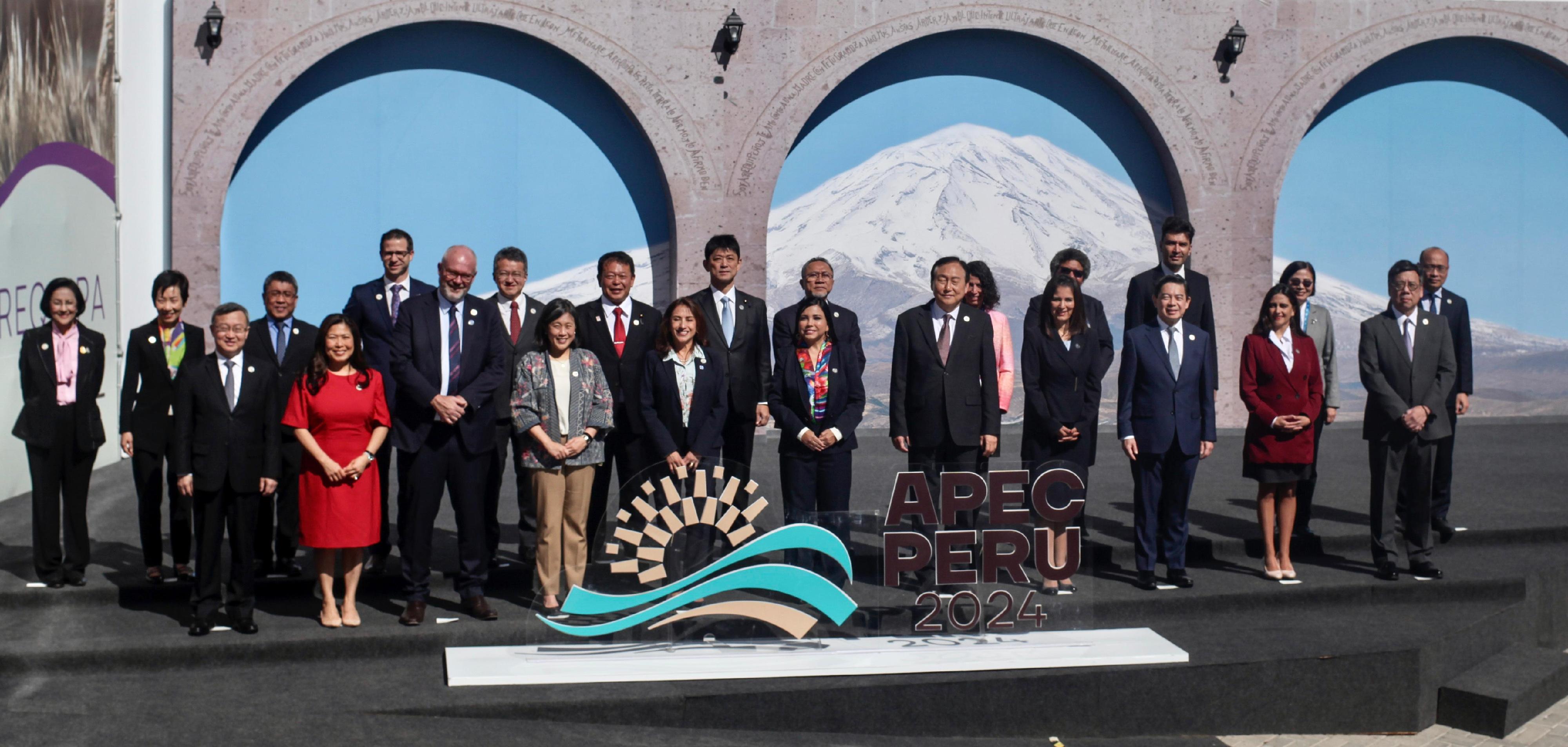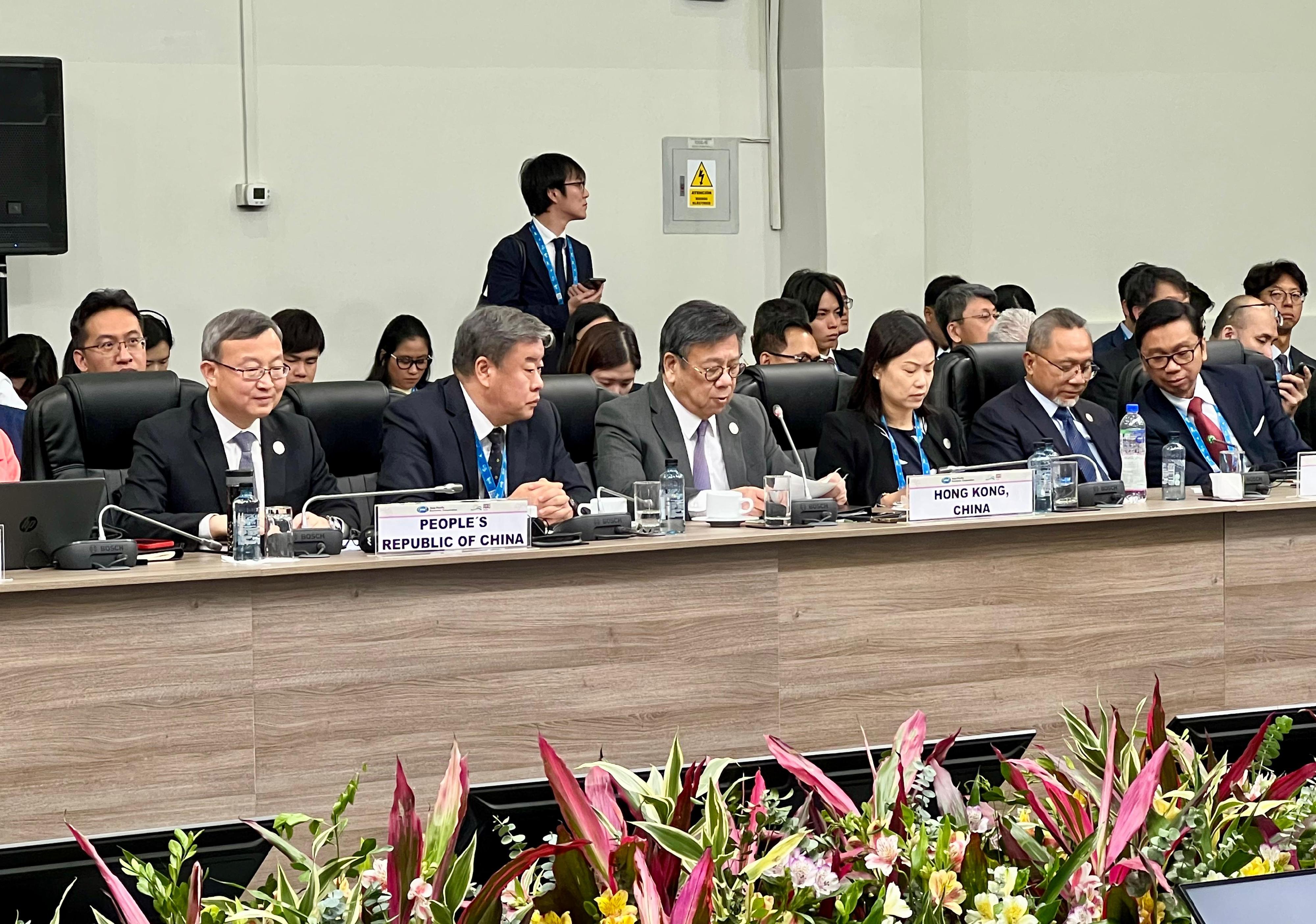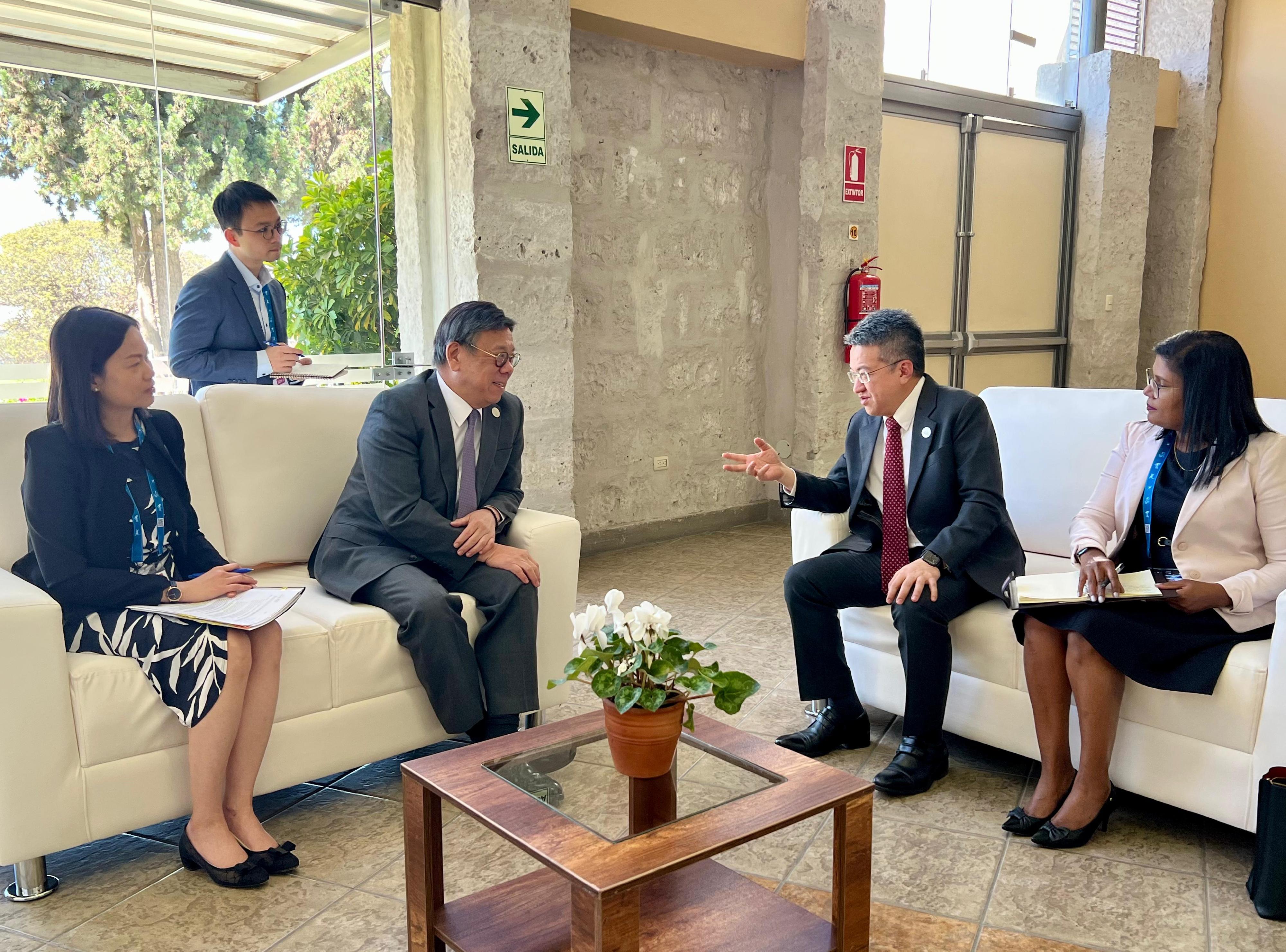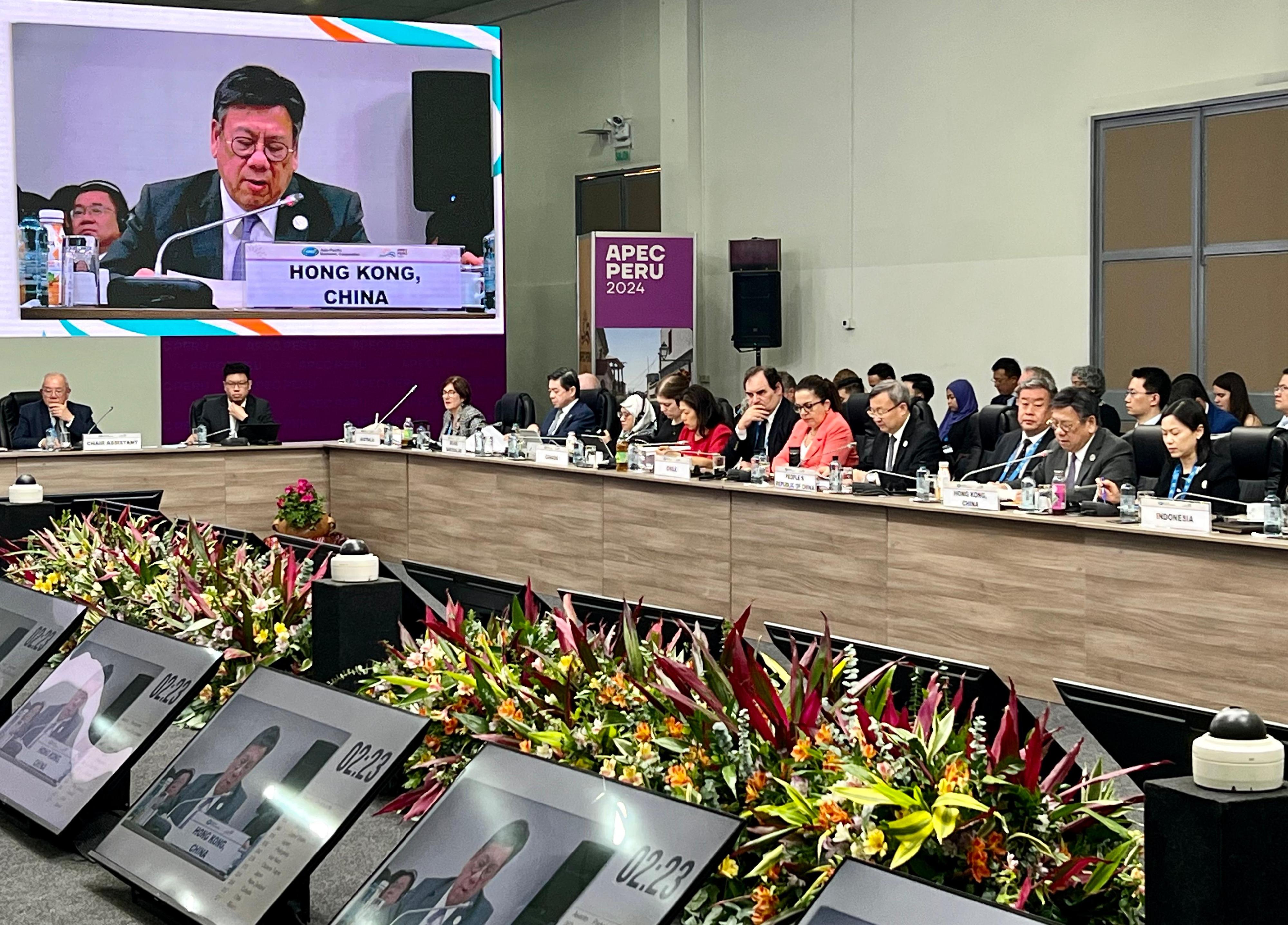Following is the speech by the Secretary for Commerce and Economic Development, Mr Algernon Yau, at the discussion session entitled “Trade Facilitation and Trade and Inclusion” at the Asia-Pacific Economic Cooperation (APEC) Ministers Responsible for Trade (MRT) Meeting in Arequipa, Peru, today (May 18, Arequipa time):
Good afternoon, Chair and fellow colleagues.
As we gather here today, we find ourselves navigating a complex and dynamic global trade landscape. As with any open economy deeply integrated into international markets, Hong Kong, China (HKC) is not immune to the multifaceted challenges spanning across economic, social and technological realms of our present world. I am grateful to Peru for hosting a series of timely and pertinent events leading to the MRT, including our joint meeting with Ministers Responsible for Women yesterday (May 17, Arequipa time) where we shared views and explored regional strategies on empowering women, which lie at the heart of our commitment to the APEC Putrajaya Vision 2040.
HKC is steadfastly committed to ensuring that the benefits of trade are accessible to all, particularly traditionally underrepresented groups such as micro, small and medium-sized enterprises (MSMEs) and women. MSMEs represent about 98 per cent of all enterprises in HKC. We are acutely aware of the challenges they face, particularly in access to capital and markets as well as high cost of doing business. Leveraging our position as a world-class financial and trade hub, HKC is pioneering digital finance to help them overcome these barriers. We are extending the coverage of the Commercial Data Interchange, launched by the Hong Kong Monetary Authority (HKMA) in 2022, to enable MSMEs to secure loans more conveniently through data sharing with banks on a consent basis. As of last year, this facility covered more than 13 000 loan applications totalling about US$1.5 billion (around HK$12 billion). HKC is also at the forefront in the use of Central Bank Digital Currencies (CBDCs) which holds great potential to reduce the costs and time associated with cross-border settlements, allowing MSMEs to engage more conveniently in cross-border trade. The launch of Phase 1 of the Project mBridge by the HKMA this year will be among the first in the world to settle cross-boundary business transactions using CBDCs.
To further assist MSMEs in developing foreign markets, our Dedicated Fund on Branding, Upgrading and Domestic Sales (BUD Fund) provides funding for them to develop business in 39 economies with which HKC has signed free trade agreements or investment agreements, including many APEC member economies, through branding, upgrading, restructuring, and promoting sales. Additionally, “E-Commerce Easy” will be launched under the BUD Fund to enhance financial support for MSMEs to undertake e-commerce projects in expanding market reach.
As the digital economy emerges as a critical economic driver, HKC is equally dedicated to improving the efficiency of our businesses through equipping them for digital transition, which is particularly crucial for MSMEs and women entrepreneurs so as to stay competitive in the global market. Just last month, the Digital Economy Development Committee, chaired by our Financial Secretary, put forth a set of recommendations including strengthening digital infrastructure by enhancing 5G networks, encouraging the development of high-performance computing and data centres, promoting electronic payments, and facilitating local and cross-boundary data flow, and more.
Building on the successful launch in 2020 of “iAM Smart”, the single portal for online government services in Hong Kong, we will set up a business version, a “digital identity of enterprises” platform that enables authentication of identity and verification of signature of enterprises using electronic government services or conducting online business transactions in a secure, convenient and efficient manner. Meanwhile, we are pressing ahead with the implementation of the final phase of our Trade Single Window, which provides a one-stop electronic platform for the trade to lodge business-to-government trade documents for trade declaration and cargo clearance.
On an equally important topic, I am pleased to report that the Women Empowerment Fund with an annual funding support of about US$2.6 million (HK$20 million), is continuing to support women’s development and empowerment. We provide funding to non-governmental organisations to arrange workshops and opportunities for women to realise their full potential, taking into account the ubiquitous use of technology in trade as well as in every aspect of society.
Before I conclude, I would like to reiterate my appreciation to Peru for fostering these meaningful dialogues within APEC on uplifting vulnerable and marginalised groups of our community and facilitating their assimilation with the formal and global economy. These conversations are pivotal in setting the stage for recalibrating APEC’s collective efforts in building a region that is resilient, inclusive, agile and adaptable to change. HKC is eager to collaborate with all member economies to advance towards an open, dynamic, resilient and peaceful Asia-Pacific community for the benefit of all our people.
Thank you. read more





